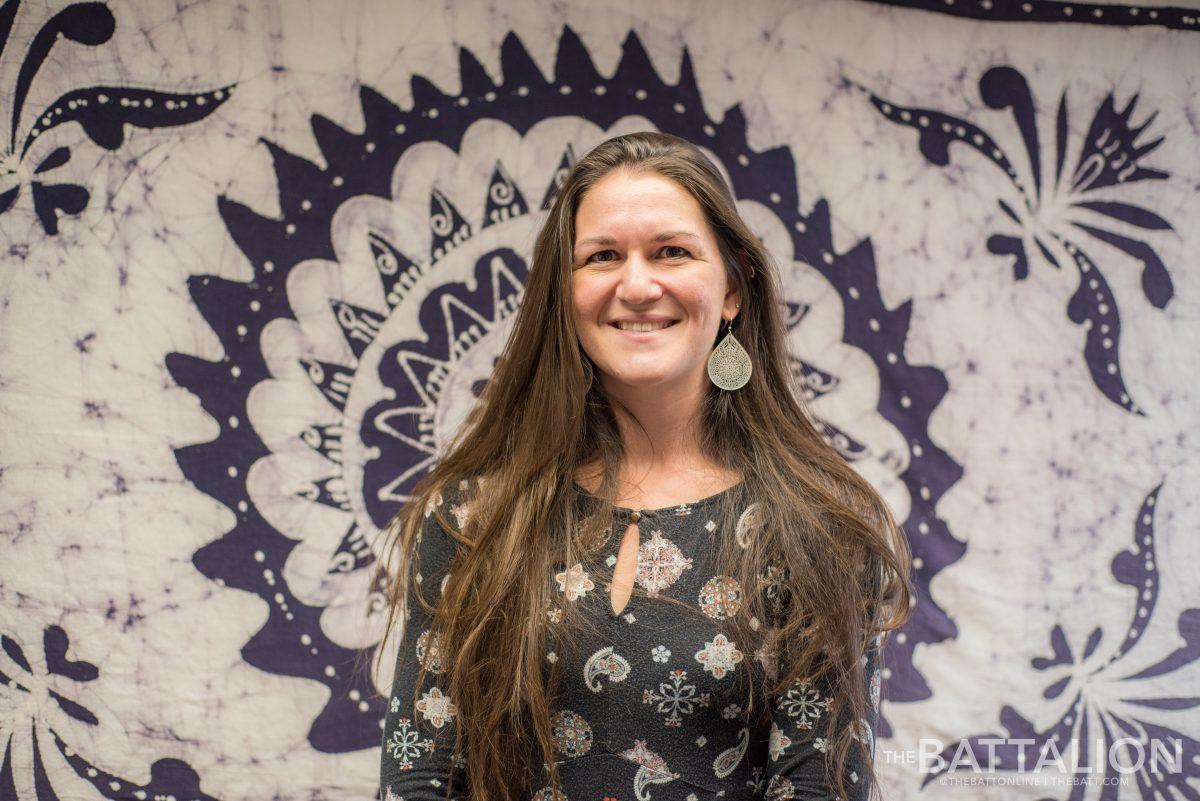The world’s oldest profession often comes with a heavy stigma, but Anna Wolfe’s research dispels misconceptions and sheds light on the lives of sex workers in the legal brothels of Nevada.
Before arriving at Texas A&M in 2016, assistant professor Wolfe spent three years at the University of Nevada, Reno, where she became interested in the state’s legal brothels. This research led her to write the book “Sex and Stigma,” set for release on Jan. 15 and co-authored by fellow-scholar Sarah J. Blithe and Breanna Mohr, a master’s student at the University of Nevada, Reno, and full-time sex worker.
As an organizational communication scholar, Wolfe said she was initially looking at the complex relationship between brothels and the communities housing them. Wolfe said the presence of legal brothels is not always desired by locals, but they exist with an agreement of higher taxes, which boosts the community.
“I’m not from Nevada, but I learned really quickly that the brothels play a really important role in communities,” Wolfe said. “That tax money supports all sorts of things. In rural counties in particular, there are entire school districts that couldn’t exist if it weren’t for the tax dollars from the rural brothels.”
Wolfe said she became interested in the stories of the sex workers and the stigma attached to this line of work. According to Wolfe, there are many misconceptions about the industry, led by a belief that all sex workers are victims. Women who choose to work at the brothels, many of whom are mothers and students, are often there because alternative work options don’t support their needs, Wolfe said.
“They come to the brothels after viewing alternatives, and I think that’s important to recognize,” Wolfe said. “Some women go there because they like to have sex. There’s also a sense that these are things that people have been told they’re supposed to feel shame about, but they find a non-judgmental community in the legal brothel setting.”
Wolfe said people unfamiliar with the legal brothels tend to stereotype sex workers. However, not all sex workers come from a bad background. Many women in the legal brothels are there for similar reasons people do other jobs: flexible schedules, financial stability or enjoyment, according to Wolfe.
“A lot of the reasons why women chose the brothels are as much a criticism of more traditional organizations as they are an explanation for what’s good about brothels,” Wolfe said. “People come to the brothels because their work-life balance is not good with other options.”
Co-author Breanna Mohr, 27, said she began working in the industry at the age of 20. Recently, she has been politically active in protecting the jobs of those employed by the brothels, many of whom are not sex workers. Though she was originally afraid to speak openly about her job as a sex worker, Mohr said she began to feel more comfortable with her identity and came out publicly after taking one of Wolfe’s classes.
“Working with her provided me with a great support system and made me a better writer, a better researcher, a better everything really,” Mohr said. “It was just inspiring to see the work that she does and to have someone that believes in me. It’s just a great feeling. I just love her so much.”
Studying stigma in the sex industry
November 30, 2018
Photo by Photo by Annie Lui
Assistant professor of communication Anna Wolfe co-authored “Sex and Stigma,” a book that discusses the interaction between legal brothels and their surrounding communities.
0
Donate to The Battalion
$1815
$5000
Contributed
Our Goal
Your donation will support the student journalists of Texas A&M University - College Station. Your contribution will allow us to purchase equipment and cover our annual website hosting costs, in addition to paying freelance staffers for their work, travel costs for coverage and more!
More to Discover










